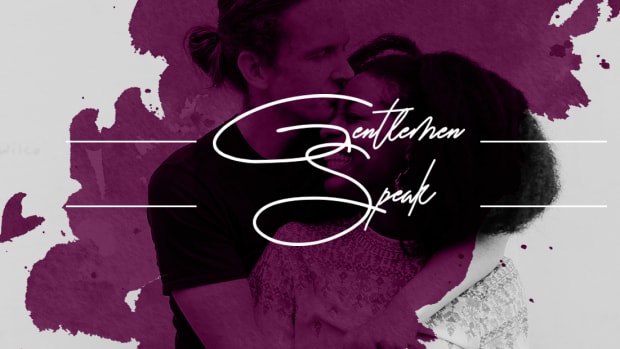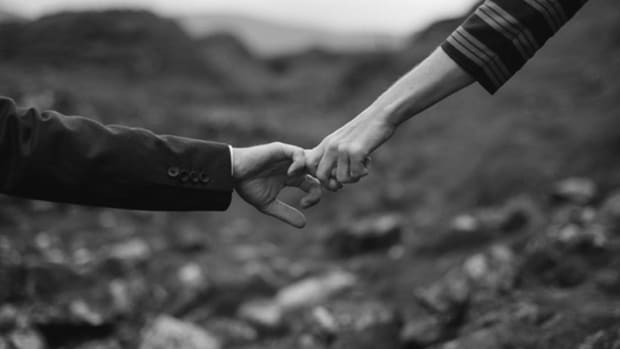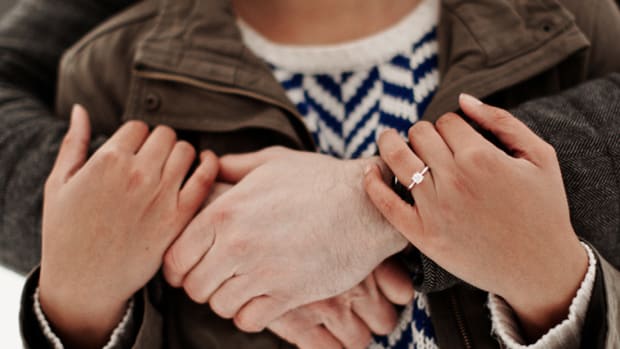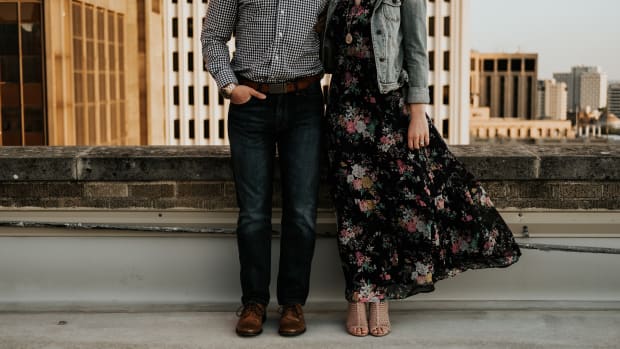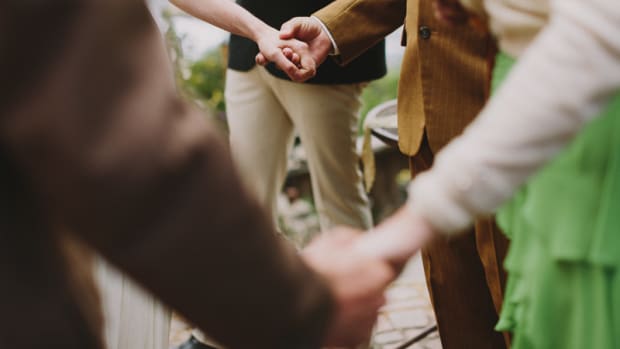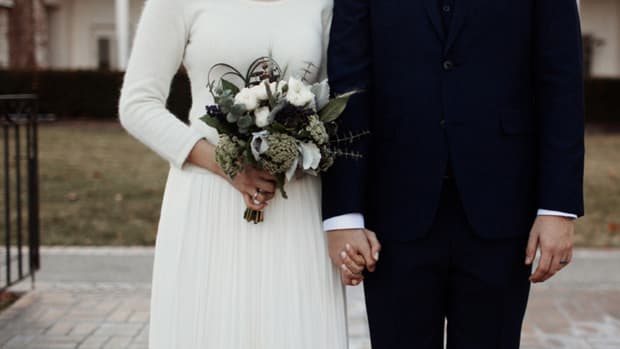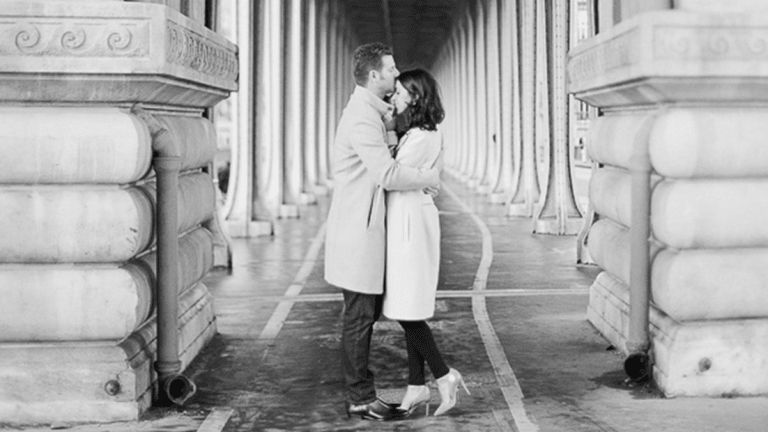
British and American Women Share What It’s Like Dating French Men
Oh, French women. You have croissants, crème brûlée, self-possession, paid maternity leave . . . and simplified dating rules.
By way of a different culture, language, and romantic norms, dating someone from any country is bound to present some serious differences. But dating in France—or dating a French guy on American soil—presents a whole new world of romance that can’t necessarily be ordered à la carte.
To clarify, we’re referring to dating here as a long-term relationship. Understanding the realities of French dating customs requires digging a little deeper than one or two great dates—so we spoke with five women who maintained actual serious romantic relationships, not just a week of abroad flirting. Here’s what they told me:
01. Time together is made of substance.
According to the women I've spoken with, when a man asks you out in France, chances are it won’t be a "Netflix and chill" situation or a casual bite to eat. “French guys don't necessarily want to just go get a drink or see a movie. I've been on first dates in France that I couldn't drag even long-term boyfriends to in the U.S.: museums, theater, music that doesn't involve earplugs,” shares Tamara, a commercial real estate consultant living in Paris. In other words, the French like to fill their dates with character and content. “It's pretty appealing to watch a French man study a wine menu like most American men read the sports page,” admits Tamara.
Abinet’s experiences help to confirm this. Before finding love in France, Abinet felt lucky if a guy stuck to a plan for a date. But in France: “He initiated dates, planned them to a tee, and never canceled. Halfway through our first date, he asked what I was doing the day after next and suggested a restaurant we should try. The dates he's taken me on are much more 'cutesy' than what I previously expected from a man,” she shares. From ice skating on top of Tour Montparnasse to a picnic on a rowboat in the lake at Bois de Boulogne, Abinet’s boyfriend has definitely topped all of her previous date experiences. “I realized just how severely casual dating in America had become.”
Anna, a tech director at a film production company in Paris, concurs: “There seems to be an old fashioned-ness still that doesn’t seem to happen much in the U.K. Often dates in France involve eating somewhere, which was an interesting change from Netflix and popcorn that have swept nations all over."
02. The pace—from the beginning—tends to be faster.
“Things move a lot more quickly here in France than they do at home,” shares Eileen, a journalist and photographer now living in Paris. “I was off the market pretty quickly. After our first date, we spent every single day together for three weeks. It moved really fast, but I hear that’s normal here.” Eileen believes the faster pace of new relationships is due primarily to cultural differences. “The French are more receptive to emotions, and to me, they seem more romantic,” she says.
For some, this immediate intimacy is refreshing—but for others, it’s a bit off-putting. Tamara shares her perspective: “It feels awkward to gaze deeply into a stranger’s eyes. And I’ve actually had to say things like, ‘I don’t know you yet, so I’d prefer not to hold hands.’”
03. Exclusivity is implied: The DTR talk doesn’t exist.
Different than in the United States—where there’s often a moment when you define the relationship (DTR) as a couple—the French believe that there's a mutual understanding after a kiss or successful date. Exclusively isn’t something that needs discussion.
Abinet experienced this after a three-week vacation to France to see family friends. She downloaded Tinder looking for a fun night out. “I ended up on a first date with the first man I’ve ever loved.” He considered her to be his girlfriend and formed a sense of commitment immediately after that first date went well. OK, it went really well. Abinet moved to Paris just three weeks after her initial trip ended.
“Couples just don't have ‘the talk’ in France,” Eileen adds. “It's just assumed that you're together, an official couple. I had to ask my boyfriend if he was my boyfriend.” His response: "Haven't I been for awhile?"
04. Flirting is hardwired and doesn’t necessarily mean he’s interested.
“I love that in France a man thinks nothing of complimenting a woman that he doesn't know; he compliments her on her smile or her hair or whatever—and it doesn't mean anything more than, ‘I appreciate you,’” shares Carol. “Flirting is an art form in France, and it doesn't feel objectifying or manipulative."
Lightness, romance, and wit are an innate part of how the French communicate. The term ‘flirting’ comes from the word ‘fleureter,’ meaning ‘to say sweet words.’ The best part of it is, French flirting at it's finest needs no interpretation and shouldn't leave a woman wondering. While some American women might find this annoying, the women I spoke to felt it glorious to be able to just respond with a ‘merci’ and move on with their day wearing a smile.
05. Gender differences are recognized and appreciated.
To Carol, who dated a French man for years, it seems a given in French culture that men and women are different and that those differences are to be celebrated—not ignored. “French men pay attention to things like women wearing make-up, perfume, dressing well, and they enjoy a woman’s sensuality.” This doesn’t mean they expect women to be mere ‘eye candy,’ though. To the contrary, explains Carol: “French culture appreciates both the sensual and the intellectual."
American ex-pat and writer, Pamela Druckerman, famous for her bestseller Bringing up Bébé expounds that in France, while generally a much more egalitarian culture, gender equality doesn't imply that you're the exact same. In describing how married couples split up chores, she says, "Fifty-fifty rarely happens. Try tempering your feminist theory with some old-fashioned French pragmatism." And that spirit carries over to their dating culture as well—for better, and sometimes, for worse.
To Mary Alice, this gender difference was especially apparent when it came to whose role it was to pursue. "The men were very persistent with chasing," she recalls. "I think the biggest thing is that the French men really felt the need to be the pursuers."
Perhaps some of those gender roles may be irritating for some women, while others might find these kinds of differences invigorating. That said, wherever you are, make sure to go into any relationship with an arsenal of healthy habits, as none of those things will need translation.

